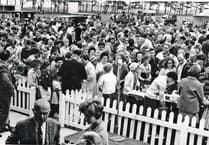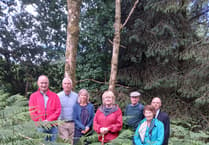PARISH councillors in an Exmoor village want to know why neither paramedics nor an ambulance turned up when they were called by a suspected stroke victim.
Councillors in Timberscombe were told the incident happened in April after the elderly resident had used the NHS 111 service.
The distressed woman believed she was suffering a transient ischaemic attack (TIA) or ‘mini stroke’.
The resident, who asked to remain anonymous, had suffered TIAs previously, so she knew what they felt like.
But despite making two calls during the evening to the 111 telephone service, the vulnerable woman was left on her own and was taken by a friend to see a GP the next day.
Her first call was made at about 6pm on Thursday, April 25, and she rang again about two hours later and waited in vain until the early hours before going to bed.
The woman’s friend told the Free Press: “She was told a paramedic would visit her as soon as possible.
“After two hours and no paramedic, she rang 111 again.
“She was told it had been transferred to the ambulance service and that an ambulance would attend.
“She stayed up until 2am in a very distressed state hoping somebody would come, but no ambulance arrived.”

The friend said she was asked by the woman the next morning to take her to a doctor's surgery in Dunster.
The GP also feared the patient might be suffering a stroke and referred her to the stroke clinic in Musgrove Park Hospital, Taunton.
An NHS spokesperson said a TIA was caused by a temporary disruption to the blood supply, resulting in a lack of oxygen to the brain.
It could cause sudden symptoms similar to a stroke, such as speech and visual disturbance, and numbness or weakness in the face, arms, and legs.
However, a TIA did not last as long as a stroke and the effects could clear after a few minutes or a few hours, and were usually fully resolved within 24 hours.
The Free Press approached both NHS Somerset and the South Western Ambulance Service NHS Foundation Trust (SWASFT) to explain the missing paramedics and ambulance.
However, SWAST said it could not trace the woman’s calls without being given her name and address.
A spokesperson for SWASFT and for HUC, which is the 111 call centre provider, said: “Patient care is the number one priority for HUC and SWASFT.
“As such, we would welcome the opportunity to look into these claims further.
“Unfortunately, it has proved impossible for us to do so without knowing the identity of the individual concerned.”
The Free Press has previously reported on elderly residents suffering falls and waiting 10 to 12 hours for ambulances to arrive.
In one case, a terminally-ill Minehead man suffered a fall in his bathroom and waited from 7.30pm at night until 7.30 m the next morning before an ambulance arrived.
At the time, SWASFT blamed handover delays at Musgrove Park Hospital for contributing to the lengthy waits.





Comments
This article has no comments yet. Be the first to leave a comment.